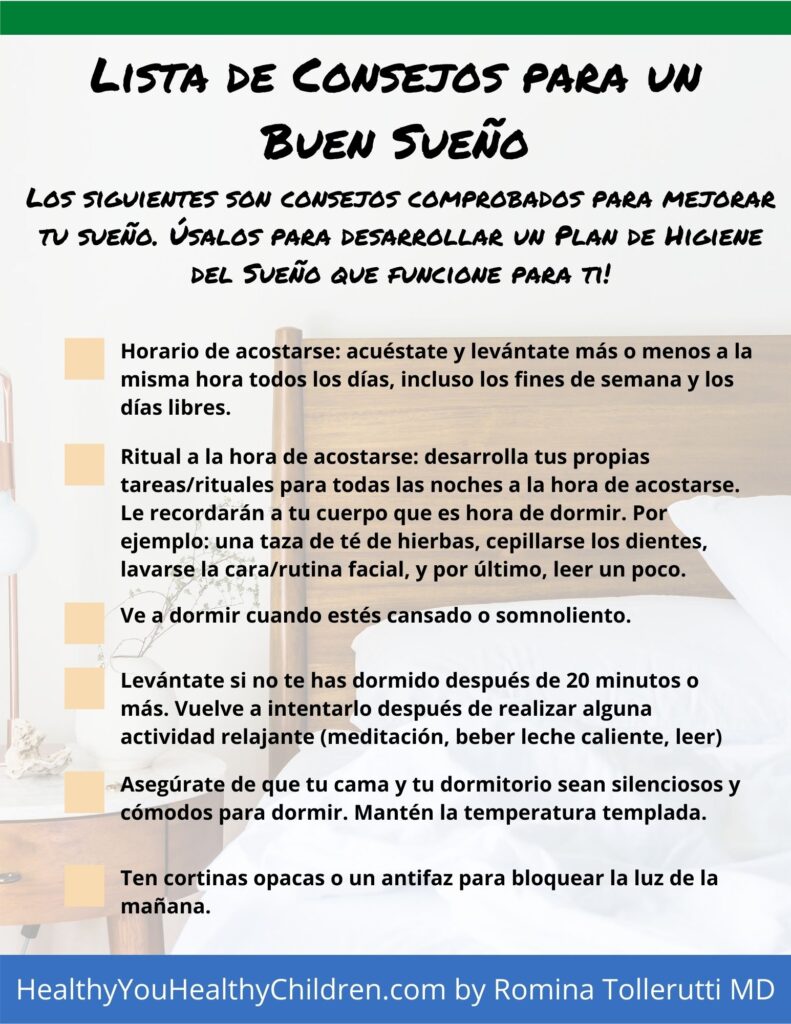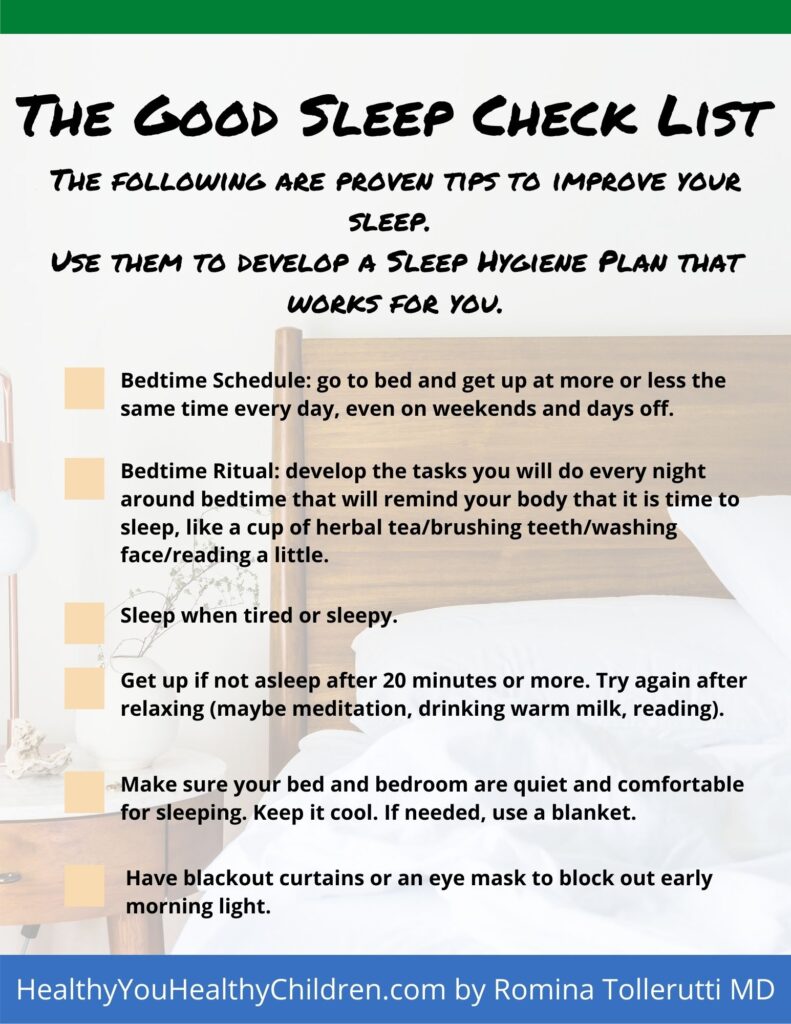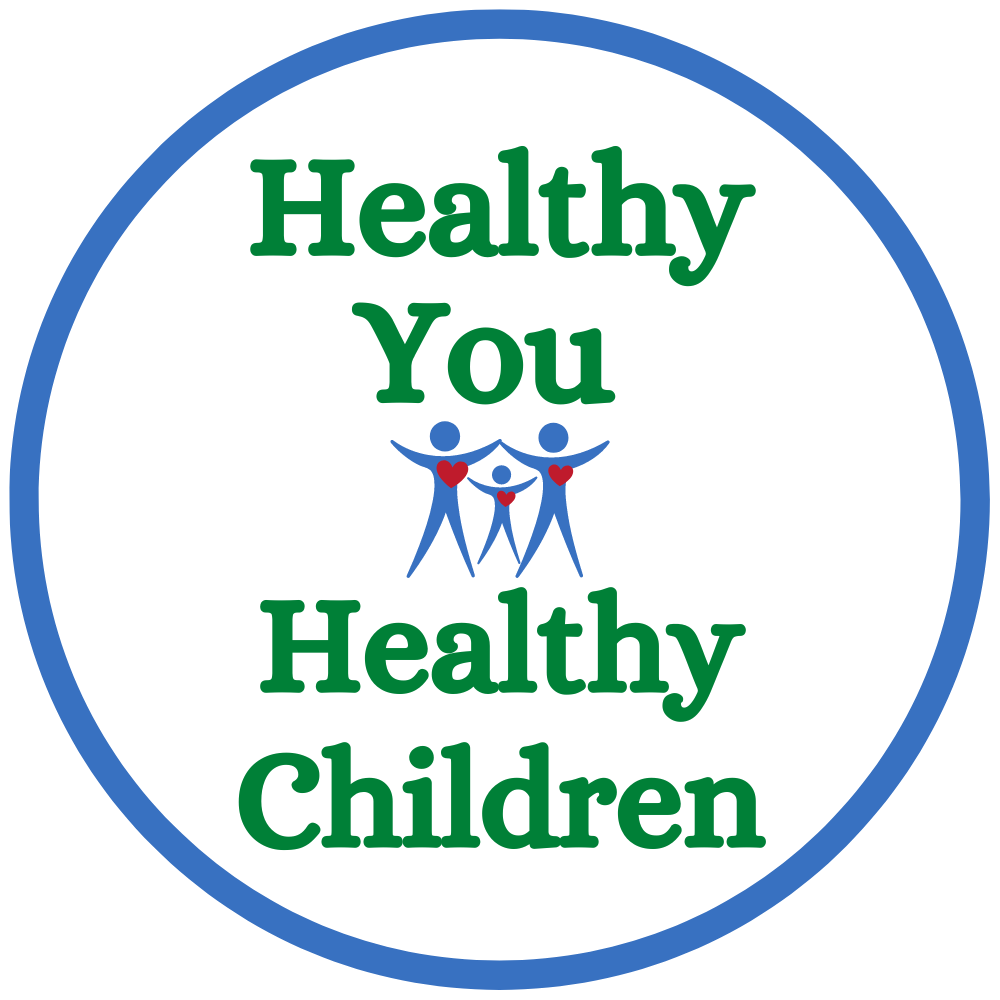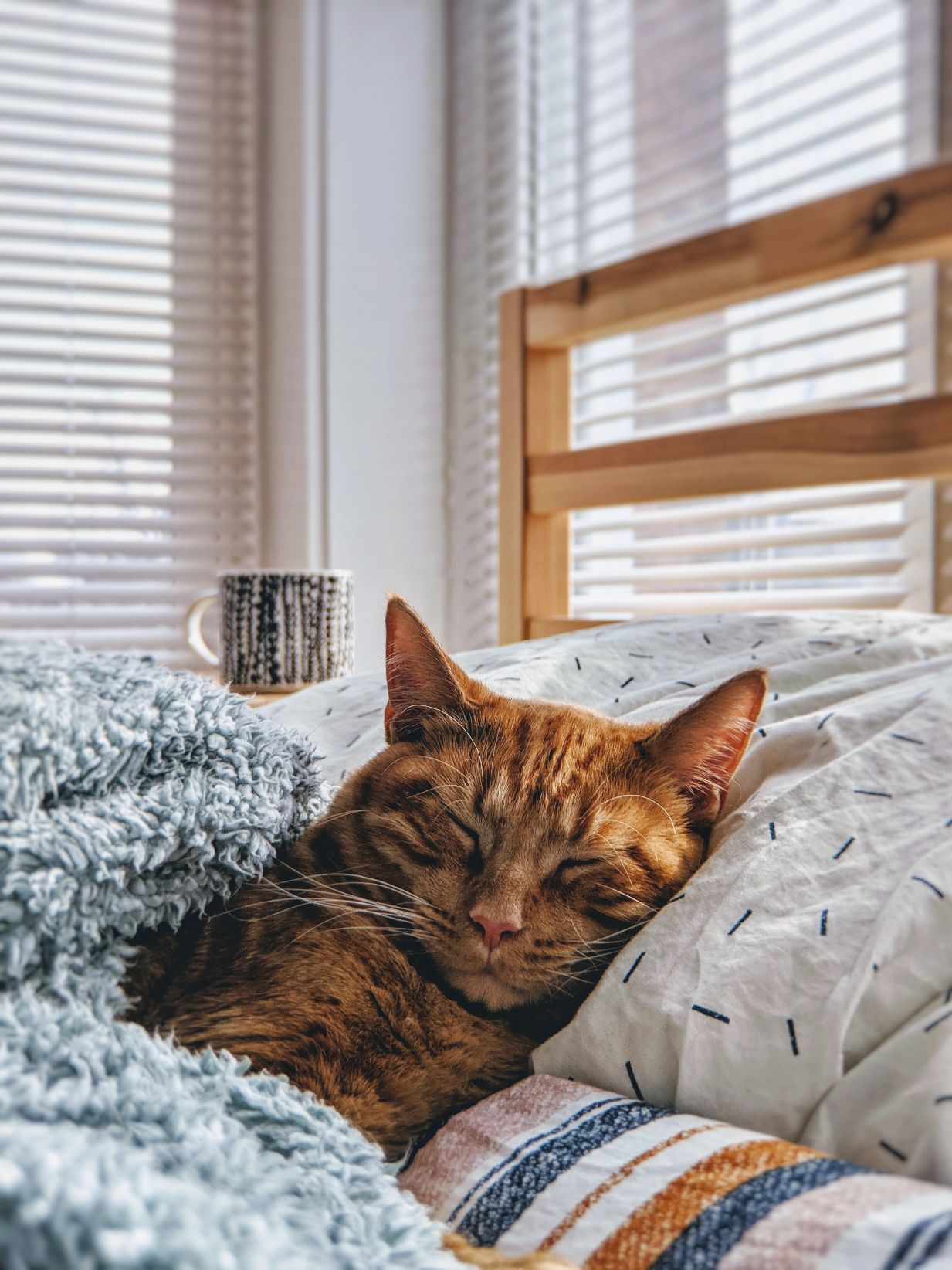It is essential to your overall health and well-being to get adequate, restorative, and healthy Sleep which means appropriate quantity, timing, and quality. When working on a plan to improve your lifestyle, getting quality Sleep should be as important as eating well, exercising, or managing stress levels.
Everyone has had a lousy night’s Sleep. When we have a night of poor Sleep, we feel irritable and unfocused. In contrast, when we have a good night of Sleep, we feel more energetic, more alert, and have a better mood to start our day. Parents reading this article can relate to this statement very well.
Because Sleep is involved in many aspects of our body function, poor sleep quality and insufficient sleep duration (especially regularly) are associated with several health problems. But, research has shown that sleeping more than nine hours periodically is also linked to poor health. Like many things in life, a good balance is a positive one.
Sleep and its Effects on Health
A lot of research has been done about the impact of Sleep on our health. We do not know a lot yet, but sleep plays an essential role in many repair processes and keeps our body functioning. While we sleep, we restore and rest our brain, boost the immune system, produce antibodies, fight infections, and clean cellular waste.
Let’s explore how sleep is linked to the following chronic medical conditions.
Heart Disease and High Blood Pressure (Hypertension):
Studies have found the following:
- A single night of poor Sleep in people with high blood pressure can cause elevated blood pressure throughout the following day.
- Sleeping less than 6 hours per night or, on the contrary, more than 9 hours per night elevates the risk of coronary disease in women.
- Short sleep is associated with hypercholesterolemia and atherosclerosis risk.
- Obstructive Sleep Apnea, a condition involving multiple awakenings during the night due to the closing of the airway when sleeping, causes transient blood pressure elevations when waking up. Over time, this may cause chronic elevation of blood pressure (hypertension), a significant risk factor for cardiovascular disease. When treated, elevated blood pressure due to Obstructive Sleep Apnea may go down.
Obesity:
Sleep is a potential risk factor for Obesity, along with unhealthy nutrition and exercising.
Poor Sleep creates a disbalance of the hormones controlling our appetite, energy metabolism, and glucose management:
- Increment of the production of Cortisol (“stress hormone”).
- Increment in the secretion of Insulin after meals. Insulin regulates glucose metabolism and promotes fat storage. High insulin levels are associated with weight gain and an increased risk for Diabetes.
- Decrease levels of Leptin signaling satiety and elevated levels of Ghrelin, the “hunger” hormone. As a result, poor Sleep may cause more cravings and hunger. These cravings are usually for sweet foods that quickly fix our energy but are not the best nutritional options.
According to some studies:
- People who regularly sleep less than 6 hours a night are more likely to have a higher than average BMI (Body Mass Index). In comparison, lower BMI is found in people who sleeps 8 hours.
Additionally, being tired after a night of poor Sleep makes it hard for us to go ahead and be physically active during the day or exercise.
The most substantial relationship between poor Sleep and weight gain over time is the strongest among young adults and middle-aged adults.
Diabetes:
We have mentioned above the influence of insufficient Sleep on the body’s hormones and glucose metabolism.
- According to several epidemiological studies, adults who sleep less than 5 hours per night have an elevated risk of having or developing Type 2 Diabetes.
- Obstructive Sleep Apnea has been linked with the development of impaired glucose control, similar to what happens with Diabetes.
Immune System:
Good Sleep is linked to a better ability to fight infections than people who sleeps less than optimal. The theory of the “sleepiness inducing factors” proposes that the immune system evolved this mechanism to take advantage of the inactivity and rest to recover from getting sick.
Also, Laboratory studies have shown that sleep restriction is associated with a pro-inflammatory state.
Life Expectancy:
Considering the previous information, it is not surprising that insufficient sleep and its adverse effects are associated with lower life expectancy.
Three extensive cross-sectional epidemiological studies showed that sleeping five hours or less per night increased mortality risk from all causes by 15%.
Brain Functions:
Many studies focused on the relationship between sleep loss and neurocognitive function. The results have shown a dose-dependent relation: as sleep time declines-attentional lapses increases.
In addition, reduced sleep duration causes impairments in:
- working memory
- executive function
- processing speed
- cognitive performance
Caffeine intake may help with some of these effects but does not help with executive functions* performance.
*Executive Function: higher-level cognitive skills that control and coordinate other cognitive abilities and behavior. This control helps facilitate the attainment of chosen goals.
Mood Disorders and Mental Health:
Chronic insufficient sleep correlates with long-term mood disorders. Mental distress, depression, and anxiety are linked to chronic sleep problems.
Studies that asked people to sleep around 4 hours per night shown:
- feelings of elevated stress
- feeling of sadness
- decline levels of optimism
- feeling angry
- feeling mentally exhausted
- decline sociability
These symptoms dramatically improved when returning to a regular sleep schedule.

What are the signs of not getting enough good-quality sleep?
If you are asking yourself if you are sleeping well at night or not, check the following list to have an idea of what is your situation:
- You wake up tired in the morning.
- Your concentration, alertness, and memory are not your best during the day.
- You feel irritable or moody, getting angry quickly.
- You feel overly anxious about things.
- You crave sweets, or you feel hungry frequently.
- You feel tired when reading, working on your computer, watching TV, or driving during the day.
- You need extra hours of sleep during the weekends.
If you feel this is you, read the following recommendations to improve your sleep. Do not stress too much about this. You can make the necessary changes to improve these symptoms.
Developing a Sleep Hygiene to improve Sleep:
What is “Sleep Hygiene”?: is a term used to describe good sleep habits that can provide a long-term solution to sleep problems. These Tips have been researched extensively and proven to work very well.
#1 Develop a Sleep Routine:
Go to bed and get up at around the same time every day, even on days off and weekends. Your body will get used to it and will help your circadian rhythm.
#2 Have a sleep ritual:
This will signal your body that the time to sleep is coming. It can be something like:
- A cup of herbal tea.
- Having dim light at home.
- Brushing your teeth.
- Facial care routine.
- Even meditating or breathing exercises.
#3 Try with a warm bath 1-2 hours before bed:
The increment body temperature can help you feel sleepy as your body temperature drops again. The relation between dropped in body temperature, and sleepiness has been studied.
#4 Sleep when Sleepy:
Avoid staying in bed if you cannot fall asleep.
#5 Get up, do something, and try again:
Going back to point #4, if you cannot fall asleep after 20 minutes or more, get out of bed, and do something that you know will help you calm down until you feel sleepy. Once sleepy, go back to bed.
Avoid doing something stimulating, like watching TV, checking your phone, or answering messages, as this will make it hard to go back to bed.
#6 Having a comfortable environment:
Try your best to make your bedroom a quiet and comfortable place.
- Keep it cool. Use blankets to keep you warm.
- Make sure to block out early morning lights.
- A white noise machine can help you block outside noises.
#7 Bed is for sleeping:
Try not to watch TV, work on a laptop, eat, or do other things in bed unrelated to sleeping or having sex. Your body needs to have a clear connection between bed and sleep. If reading helps you relax and fall asleep better, do it. If not, try reading out of bed.
#8 Keep a Daytime Routine as well:
Don’t avoid activities you had planned after a poor night’s sleep. This can reinforce sleeping poorly.
#9 Eat and drink choices:
- Follow a healthy and nutritious diet.
- Avoid heavy meals before going to bed. It can interrupt sleep.
- Avoid being hungry before going to bed. Have a light snack.
- Avoid Caffeine (coffee, tea, chocolate, cola drinks, and some medications) or Nicotine at least 4-6 hours before bed. These are stimulants and will interfere with your ability to fall asleep.
- It is best to avoid Alcohol 4-6 hours before bed. Alcohol affects sleep quality, in contrast to the belief that alcohol is relaxing and helps sleep.
#10 To Nap or not Nap:
- If you need to take a nap to perform well the rest of the day, make sure you do it before 3 PM and for less than an hour.
- If you can avoid napping, just do it. It will help you make sure you are tired at bedtime.
#11 Exercise:
- Regular exercise will help you with good sleep. This is a bidirectional benefit: exercising improves your sleep, better sleep improves your energy to get your workout done.
- Working out during the evening is beneficial for a night of good quality sleep for some people.
- But, try not to perform moderate to vigorous exercise 1-2 hours before bedtime.
- Some exercises are good for sleep: yoga, light stretching and breathing exercises. You can do these ones close to bedtime.
When to Consult Your Doctor?
The following are some of the sleep conditions that need to be assessed by your Doctor or Health Care Provider:
- Obstructive Sleep Apnea
- Chronic Insomnia, especially if it is not improving
- Restless Leg Syndrome
- Excessive Daytime Sleepiness
It is best to avoid sleeping pills or natural supplements without consulting your doctor first. Sleeping pills may be prescribed in specific situations (like stress, illness, or even jet lag), only for a short time, to help go back to regular good sleep.
Final Thoughts:
Now you know how important sleep is for your physical and mental health. Try the tips I have shared and develop a great sleep routine that works for you. Download the complete GOOD SLEEP CHECKLIST by clicking below to make sure you don’t miss anything. You may need a couple of weeks to fine-tune it, but it is worth it. Like everything related to health and lifestyle, consistency is key. For tips about sleep and children, read my article HERE.
Have a good night’s sleep!








